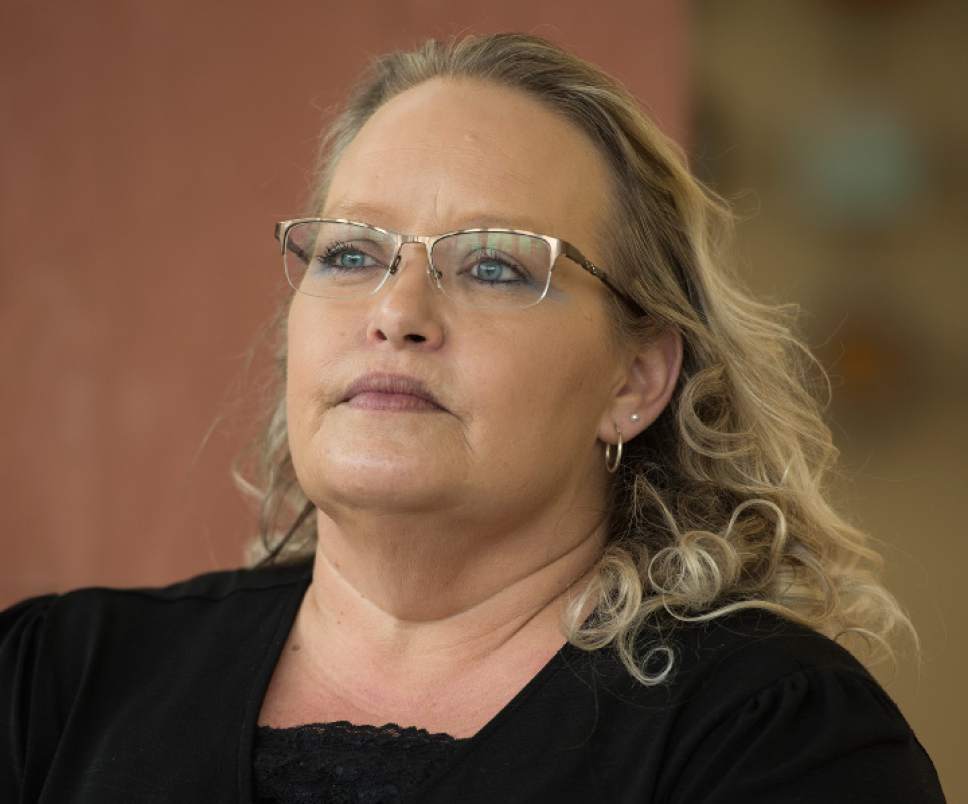Beth Jacobs

What does Survivor Leadership mean to you?
Survivor Leadership means living by example. I want to change the way our world lives and thinks surrounding the issue of commercial sexual exploitation. I strive to change the way my world treats a victim of human trafficking, from law enforcement to the criminal justice system, to the general public. I am paving the way for survivors who are coming behind me. I hope to make things easier for them. I can “pass the baton” for issues I have not been able to change yet. For example, I have worked very hard on the right to vacate convictions for all victims of human trafficking. I hope to inspire another survivor to continue this plight, and carry on with this work until every survivor is given the right to petition the court, explain their circumstance, and hope to vacate their convictions so they have the freedom to work a job and support themselves.
How long have you been in the movement against human trafficking?
I have been in this movement for decades. I graduated college in 1998 and took a job to fight commercial sexual exploitation. I remember first hearing the words “ human trafficking victim” used instead of “prostitute” in 2000. It took a while before people got used to using those words. I have spent my entire career working in this field.
What are your greatest accomplishments in the movement against human trafficking?
My greatest accomplishment is to have moved from victim, to survivor to leader! I have done many other things I am proud of.
I started one of the first John Schools in the nation. It was in St Paul, MN and replicated from the first one Norma Hoteling created in San Francisco, California.
I started a survivor run survivor driven agency in Tucson AZ called Willow Way.
I started an alternative to jail program called Project Raise in Tucson AZ.
I was able to get a vacating bill passed into a law in Arizona.
I created a survey for human trafficking survivors who had been arrested to show that many people have the issue of not being able to find suitable safe housing, or adequate sustainable employment to take care of themselves & their families, because of their criminal backgrounds. I got 130 survivors. It is the only data of its kind.
I was the National Survivor Network’s Policy Chair for 2 terms, and was Policy Champion for 2 terms.
I have trained thousands of law enforcement & trucking/travel systems through Truckers Against Trafficking’s Law Enforcement Training video, and in person training.
I have recorded a variety of webinar’s, PowerPoints, & training videos where I tell my story mixed with training points to educate a variety of populations.
What is one thing that carried you through the years as you transitioned from victim to survivor to now leader?
Faith in myself. I felt myself healing from the inside out. I was learning and growing and changing. I was no longer just existing. I allowed others to care about me. It was empowering to watch myself change and grow. Transitioning from victim to survivor to leader has been my greatest achievement.
What are some challenges you have faced in the fight against human trafficking as a Survivor Leader?
I think the biggest challenge has been getting people to value me. The expectation that I should work for free. My landlord does NOT say “oh don’t worry about the rent this month because you are a survivor! Many people don’t seem to understand this concept. We as survivors have bills to pay too, and if we spend most of our time working for free, how will we pay our bills? I have been working in this movement for many years. It is getting a little better, but we have a long way to go.
Another challenge is getting people to see us as experts. We ARE experts, this has happened to us, and many of us have studied this phenomenon. We have gone to college and gotten degrees, and yet often people think we are too broken to benefit others. This is not true.
What advice do you have for younger Survivor Leaders who are just beginning their journeys?
Don’t rush to disclose personal hurtful things to make a few dollars, or benefit a program or agency. Wait until you are ready, and be sure you will be ok and have peace about your decision. We don’t have to disclose any part of or all of our stories. Some survivor leaders never tell their stories to the general public, and that is OK, it doesn’t make them any less of a survivor. Figure out what you want to do and where your passion lies. It might be facilitating groups, or writing a book. Maybe grant writing is your forte. Take your time, heal and figure it out.
What advice do you have for the anti-trafficking movement as it relates to Survivor Leadership?
Listening to survivors is detrimental when trying to moving forward within this movement. You must work alongside survivors, and not in front of them. Thinking you know what’s best for survivors is not empowering to us. Survivors perspectives must be included in all policies, education, and laws. Survivor leaders will assist you along the way, but don’t expect them to help you free of charge. Compensate them like you would any other expert. Hire survivors to be part of your team, and pay them a living wage. This shows that you practice what you preach. It is living as a good example within this movement.
To honor Norma Hotaling, what would you say to her survivor leadership or about her fight against commercial sexual exploitation?
The John School you created is amazing! I was able to replicate it in St. Paul MN and helped others create something similar in Tucson AZ. This program helps the “Johns” understand what they are doing and how they are hurting themselves, their families, the community, the women, and our society as a whole. I am so grateful I am able to be a part of this. I promise to continue to educate everyone one this issue using your technique.


Social Media